45 label the different parts of the sun
"Parts" of the Sun | Center for Science Education What are the "parts" of the Sun? Scientists who study the Sun usually divide it up into three main regions: the Sun's interior, the solar atmosphere, and the visible "surface" of the Sun which lies between the interior and the atmosphere. There are three main parts to the Sun's interior: the core, the radiative zone, and the convective zone. The Sun - Imagine the Universe! The three parts of the atmosphere, from the surface of the Sun outward are the photosphere, chromosphere, and corona. (Credit: NASA) The Photosphere Since the Sun is made up of hot gas, there isn't really a "surface" to it. Instead, as you move from space toward the Sun's core, the gas gets denser and denser.
› templates › categoryAll Label Templates | Avery.com All Label Templates; All Label Templates. Avery Templates by Product Number. Search by product number. See all. 0 items. FILTER . SORT BY: Most Popular . Most Popular Product #: Low - High Product #: High - Low Size: Small - Large Size: Large - Small . For the latest trends, ideas & promotions.

Label the different parts of the sun
the-parts-of-a-sundial - Illustrating Shadows gnomon's sloped edge (style) is the de-facto nodus. The gnomon is often a triangle, and is fixed to the. dial plate by the sub-style. The tip at the base of the gnomon, at the tiny end, is called dial center, from whence hour lines are. marked. The angled bit which actually casts the shadow for. the hours is called the style. What Is the Sun Made of? Components, Features, and Parts of ... - Owlcation In Brief, What is the Sun Made Of? Well, Here are the Components of the Sun Hydrogen and helium The core The radiative zone The convective zone The photosphere The solar atmosphere Neutrinos Radio emissions X-rays Prominence Flare 1. Hydrogen and Helium - Major Components of the Sun The sun is chemically composed of hydrogen and helium. What Is the Sun Made Of? Table of Element Composition - ThoughtCo Solar Structure and Composition. The Sun is constantly fusing hydrogen into helium, but don't expect the ratio of hydrogen to helium to change anytime soon. The Sun is 4.5 billion years old and has converted about half of the hydrogen in its core into helium. It still has about 5 billion years before the hydrogen runs out.
Label the different parts of the sun. en.wikipedia.org › wiki › LabelLabel - Wikipedia A label is a piece of paper, plastic film, cloth, metal, or other material affixed to a container or product, on which is written or printed information or symbols about the product or item. Information printed directly on a container or article can also be considered labelling. Labels have many uses, including promotion and providing information on a product's origin, the manufacturer, use, safety, shelf-life and disposal, some or all of which may be governed by legislation such as that for foo Layers of the Sun (With Labels) - Solar System The sun and its atmosphere consist of several zones or layers. From the inside out, the solar interior consists of the core, the radiative zone, and the convection zone. The solar atmosphere is made up of the photosphere, the chromosphere, a transition region, and the corona. Labelling the Parts of the Sun.docx - Labelling the Sun For the ... The deepest later of the sun. it reaches from the surface visible at the center of the solar disk. Most of the photosphere is covered by granulation. The visible surface of the sun, where the temperature averages just under 6000k 5 Chromosphere The layer of the sun's atmosphere below the corona; most of the sun's ultraviolet light is emitted from this region, in which the temp. is about ... Identify the parts of the Sun labeled A, B, C, D, and E. Label A Answer: Layer A- CORE Layer B- RADIATIVE ZONE layer C- CONVECTIVE ZONE Layer D- PHOTOSPHERE Layer E- CHROMOSPHERE Explanation: The core of the sun is the interior past where nuclear reactions leads to the consumption of hydrogen gas in order to form helium gas.
Parts of the Sun Flashcards | Quizlet Lowest layer of the Sun's atmosphere; gives off light and has temperatures of about 6,000K. Chromosphere Layer of the Sun's atmosphere above the photosphere. Prominence Links different parts of the sun spot regions together. Corona Layer of the Sun that is only visible during a solar eclipse. Sets with similar terms Layers of the Sun The Sun Sun | National Geographic Society Differential rotation happens when different parts of an object rotate at different velocities. The sun is made up of gases undergoing different processes at different layers and different latitudes. The sun's equator rotates much faster than its poles, for instance. The rotation rate of the sun changes rapidly in the tachocline. Layers of the Sun: Structure & Composition with Diagram - Science Facts The sun has seven different layers, which are further divided into three inner and four outer layers. The names of these layers, in order of their presence from the core of the sun are as follows: Inner Layers 1) Core 2) Radiative Zone 3) Convection Zone Outer Layers 1) Photosphere 2) Chromosphere 3) Transition Region 4) Corona Inner Layers Parts of the Sun Flashcards | Quizlet Parts of the Sun Term 1 / 11 Photosphere Click the card to flip 👆 Definition 1 / 11 Is what our eyes perceive as the visible surface on the Sun. Here, energy escapes from the interior and streams into the Sun's atmosphere and beyond. The photosphere is the home to dark sunspots. Photo means light Click the card to flip 👆 Flashcards Learn Test Match
Regions and Features of the Sun | Center for Science Education The interior of the Sun is divided into three main regions. At the center is the core, where energy is produced by nuclear fusion at incredible temperatures. The core is surrounded by the radiative zone, which in turn is enclosed within the convective zone. The visible "surface" of the Sun, called the photosphere, sits atop the interior layers. PDF Parts of the Sun - Montana This moves them from the inner parts of the Sun to the outer part of the sun that we see. 4. Photosphere: This is the part of the sun we see. This layer gives off the heat and light from the sun. The cooler parts of this layer make sunspots. 5. Chromosphere: This layer shoots out hot gases. 6. Corona: This layer can only be seen during an eclipse. Anatomy of the Sun | NASA The Chromosphere - This relatively thin layer of the Sun is sculpted by magnetic field lines that restrain the electrically charged solar plasma. Occasionally larger plasma features, called prominences, form and extend far into the very tenuous and hot corona, sometimes ejecting material away from the Sun. › tags › tag_labelHTML label tag - W3Schools Proper use of labels with the elements above will benefit: Screen reader users (will read out loud the label, when the user is focused on the element) Users who have difficulty clicking on very small regions (such as checkboxes) - because when a user clicks the text within the element, it toggles the input (this increases the hit area).
Diagram of the Solar System - Universe Today Jupiter - Jupiter is the 5th planet from the Sun, and the largest planet in the Solar System. Jupiter has as much mass as 2.5 times all the rest of the planets combined - almost all of this ...
Layers of the Sun Facts, Worksheets & The Sun For Kids - KidsKonnect The Sun is the largest object in our solar system. It is composed of seven layers: three inner layers and four outer layers. The inner layers are the core, the radiative zone and the convection zone, while the outer layers are the photosphere, the chromosphere, the transition region and the corona.
learn.microsoft.com › en-us › microsoft-365Publish and apply retention labels - Microsoft Purview... Dec 15, 2022 · To label a document (including OneNote files) in OneDrive or SharePoint, select the item > in the upper-right corner, choose Open the details pane > Apply retention label > choose the retention label. You can also apply a retention label to a list item, folder, or document set, and you can set a default retention label for a document library.
Structure of the Sun Anatomy & Diagram - Study.com The layers of the Sun shown in the diagram above include a label for each of the six layers. The labels on the diagram are as follows Core Radiative zone Convective zone Photosphere...
Identify the parts of the Sun labeled A, B, C, D, and E. Label A room.The pulse rate of each student was taken at rest just before running?"Each of the five students ran between the chairs a different number of times.Their pulse rates were taken after running and the results are shown in the table below.If a control group is not included in an experiment, it would be difficult to
Layers of the Sun | NASA The outer layers are the Photosphere, the Chromosphere, the Transition Region and the Corona. IRIS will focus its investigation on the Chromosphere and Transition Region. More detail on the outer layers follows: Photosphere - The photosphere is the deepest layer of the Sun that we can observe directly.
The Structure and Composition of the Sun | Astronomy | | Course Hero Parts of the Sun: This illustration shows the different parts of the Sun, from the hot core where the energy is generated through regions where energy is transported outward, first by radiation, then by convection, and then out through the solar atmosphere. The parts of the atmosphere are also labeled the photosphere, chromosphere, and corona.
Sunspots and Solar Flares - NASA Space Place The surface of the Sun is a very busy place. It has electrically charged gases that generate areas of powerful magnetic forces. These areas are called magnetic fields. The Sun's gases are constantly moving, which tangles, stretches and twists the magnetic fields. This motion creates a lot of activity on the Sun's surface, called solar activity.
› support › labelforge-proLabelForge Pro | Graphic Products LabelForge PRO Software Support. The best safety labeling software available comes free with DuraLabel printers. Use on PC, DuraLabel Toro Max , or DuraLabel Kodiak. LEARN MORE ABOUT LABELFORGE PRO.
Layers of the Sun - The Sun Today with Dr. C. Alex Young From the center out, the layers of the Sun are as follows: the solar interior composed of the core (which occupies the innermost quarter or so of the Sun's radius), the radiative zone, and the convective zone, then there is the visible surface known as the photosphere, the chromosphere, and finally the outermost layer, the corona.
Overview | Sun - NASA Solar System Exploration The Sun is the largest object in our solar system. The Sun's volume would need 1.3 million Earths to fill it. Its gravity holds the solar system together, keeping everything from the biggest planets to the smallest bits of debris in orbit around it. The hottest part of the Sun is its core, where temperatures top 27 million degrees Fahrenheit ...
What are the Parts of the Sun? - Universe Today If you could take the Sun apart, and stack up its various elements, you would find that the Sun is made of hydrogen (74%) and helium (about 24%). Astronomers consider anything heavier than...
Layers of the Sun | Parts of the Sun | DK Find Out The structure of the sun is made up of four layers. At the very center is the dense, hot core. Around the core lie two layers: a thick layer called the radiative zone and a thinner, cooler layer called the convective zone. Surrounding all of them is the sun's surface layer, known as the photosphere.
What Are The Layers Of The Sun? - WorldAtlas The layers of the Sun are divided into two larger groups, the outer and the inner layers. The outer layers are the Corona, the Transition Region, the Chromosphere, and the Photosphere, while the inner layers are the Core, the Radiative Zone, and the Convection Zone. There are four outer layers of the Sun, and the Corona is the outermost one.
› resources › free-label-printing-software5 Best Free Label Printing Software | Capterra Nov 30, 2022 · Canva is a graphic design tool including a library of custom print templates for labels, banners, photo books, certificates, and more. It helps you personalize pre-installed, printable label templates or create one from scratch according to your business requirements. The tool lets you pick a label structure (landscape, circle, or square format) and choose a style—retro, elegant, minimal, professional, corporate, and many others—to create a label design that aligns with your business ...
Sun temperature layers: Core Radiative Tachocline Convective Zone | The ... Tachocline A thin third layer, the tachocline acts as a border between two differently rotating zones. Convective Zone The fourth layer is a zone of boiling, bubbling plasma that transfers energy outward through a process called convection. Photosphere The fifth layer is the visible surface where sunspots appear. Chromosphere
› create › labelsFree Online Label Maker: Design a Custom Label - Canva You’ve created a product that you are proud of, and now it’s time to design a label that is going to grab the attention of your customers. With Canva’s online label maker, creating a sleek label is free and easy. Customize hundreds of designer-made templates within a few clicks, choosing from millions of fonts, images, illustrations, and colors. Or, upload your own images and logos to create a label that reflects your brand’s style.
What Is the Sun Made Of? Table of Element Composition - ThoughtCo Solar Structure and Composition. The Sun is constantly fusing hydrogen into helium, but don't expect the ratio of hydrogen to helium to change anytime soon. The Sun is 4.5 billion years old and has converted about half of the hydrogen in its core into helium. It still has about 5 billion years before the hydrogen runs out.
What Is the Sun Made of? Components, Features, and Parts of ... - Owlcation In Brief, What is the Sun Made Of? Well, Here are the Components of the Sun Hydrogen and helium The core The radiative zone The convective zone The photosphere The solar atmosphere Neutrinos Radio emissions X-rays Prominence Flare 1. Hydrogen and Helium - Major Components of the Sun The sun is chemically composed of hydrogen and helium.
the-parts-of-a-sundial - Illustrating Shadows gnomon's sloped edge (style) is the de-facto nodus. The gnomon is often a triangle, and is fixed to the. dial plate by the sub-style. The tip at the base of the gnomon, at the tiny end, is called dial center, from whence hour lines are. marked. The angled bit which actually casts the shadow for. the hours is called the style.



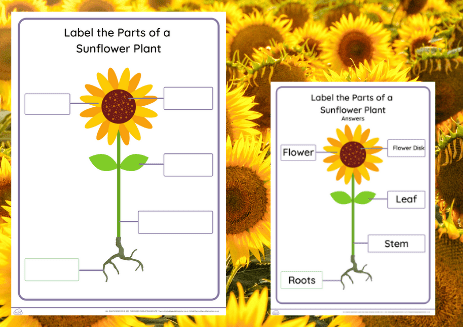


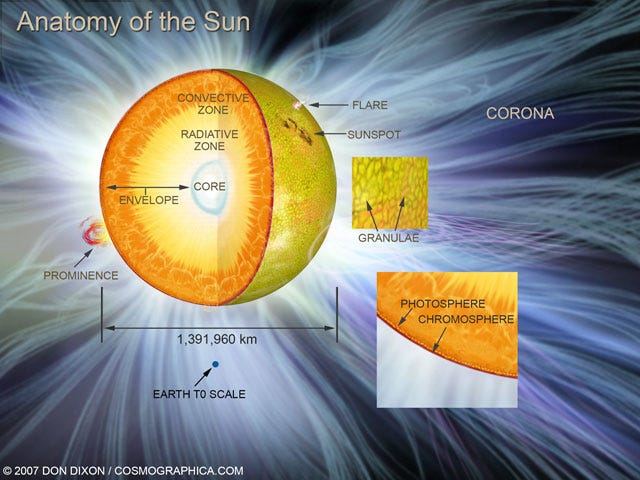

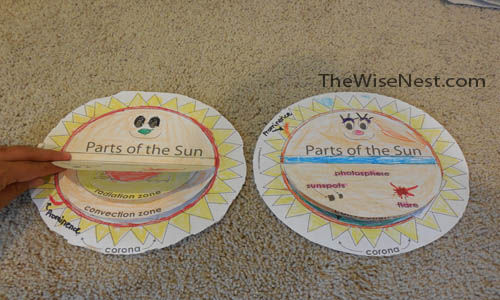

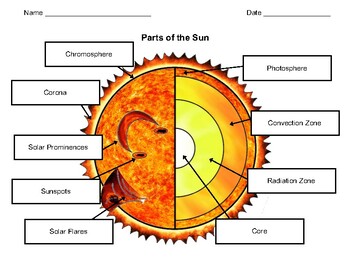
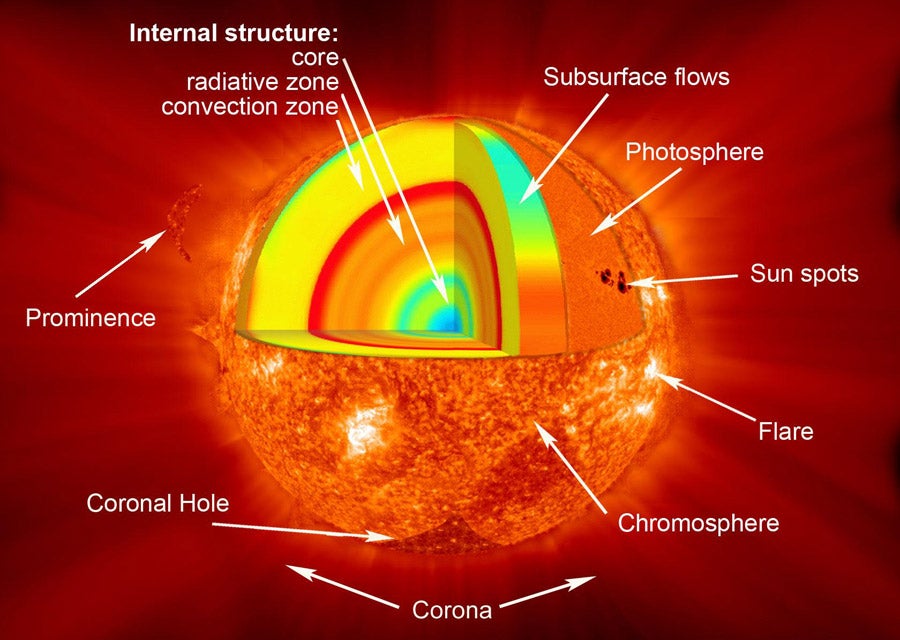








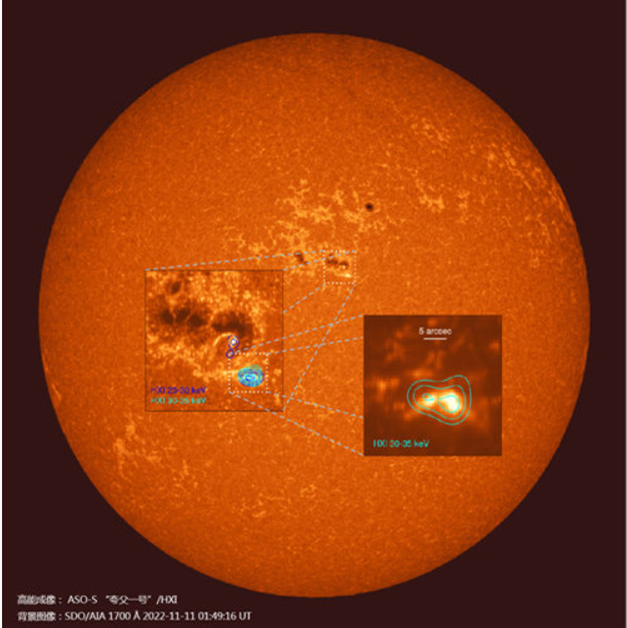





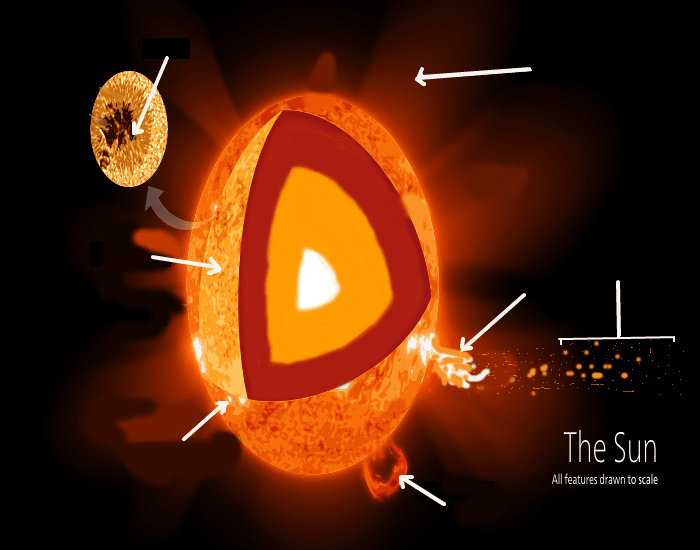



:max_bytes(150000):strip_icc()/orange_annotated-6ad01c6d9b4d4e4cbb1cdd687f78877a.jpg)
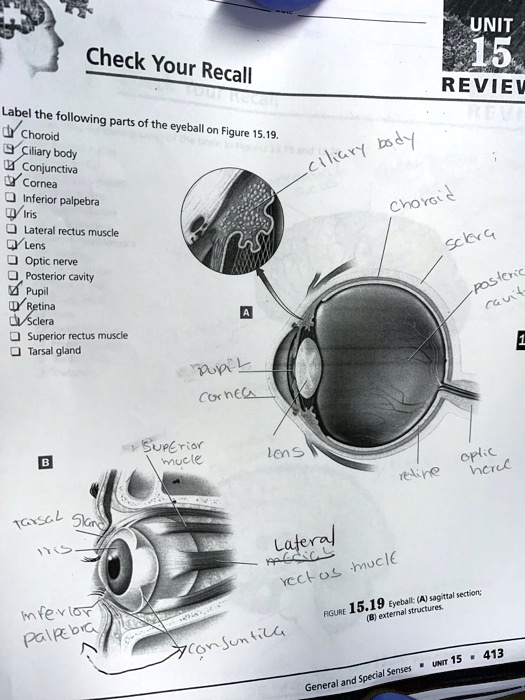
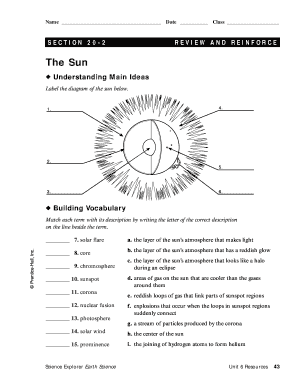
/cloudfront-us-east-1.images.arcpublishing.com/gray/GB5WPRJTCNFYJHFQUQ6MR6N4T4.PNG)


Post a Comment for "45 label the different parts of the sun"